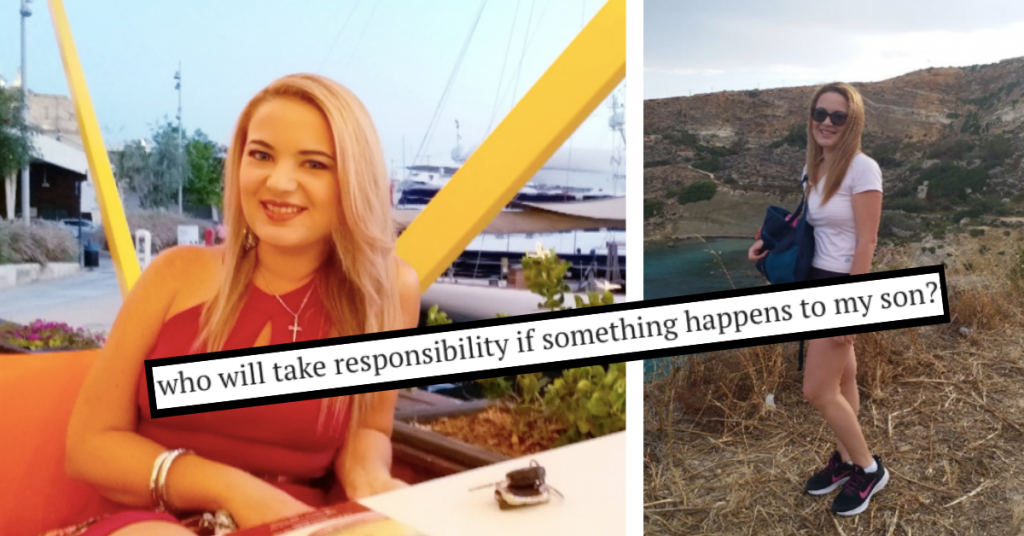‘As Restaurants Opened, My Child Still Couldn’t See A Specialist’: Another Medical Strike Can Affect This Maltese Child’s Entire Life

Throughout the past few months, Malta has seen a flurry of strikes take hold of its medical services, with many associations considering industrial action to be the only way they can make their voices heard. However, with dozens of vulnerable individuals relying on Malta’s medical services to safeguard their health, another medical strike might put some patients’ lives on the line.
Shylene Taliana, a Maltese healthcare worker and mother of a two-year-old, spoke to Lovin Malta about the adverse effects medical strikes and extreme restrictive measures can have on the vulnerable.
“When a baby is diagnosed with neuromuscular problems, unique investigations into their case are made at the hospital,” Taliana said as she recalled the procedures her two-year old had to go through.
“There’s a lot of different tests that need to be made, like biopsies, MRIs, and blood tests – and they were all going well.”
“That is, until the COVID-19 pandemic hit.”
With Malta’s medical staff focusing wholeheartedly on fighting the pandemic, it was these check-ups and tests that first faced the chop.
“They told us we couldn’t use the laboratories anymore because they were being used for these swab tests,” Taliana said.
“So naturally, the results of the investigations couldn’t come up – because the investigations themselves had stopped.”
When it comes to treating children with neuromuscular issues, time is particularly of the essence. Due to the rapid growth that young children go through, delaying an appointment could result in irreparable brain damage.
“After the first wave of COVID-19 subsided, I was expecting the hospital to call me back to set an appointment,” Taliana said.
“But whilst parties and events had started again, these appointments just didn’t resume.”
The only relevant department that started operating normally was physiotherapy, she highlighted, however other important departments – such as occupational therapy – maintained radio silence.
This was mainly due to the directives issued by UHM, the union covering health workers such as occupational therapists, podiatrists, and physiotherapists. The directives released by this union earlier this month instructed its members to solely provide emergency services until issues relating to a three-year pay dispute with the authorities are resolved.
After five months of being unable to book an appointment for her son due to the pandemic, Taliana got her hopes up as she saw Malta’s active cases rapidly decline. However, these expectations were unduly shattered once UHM issued its directives, which made booking an appointment with a specialist virtually impossible.
“But the problems don’t end there – here in Malta we don’t have wheelchair factories or wheelchair technicians.”
Wheelchair technicians are usually qualified in both medical and engineering fields in a bid to tailor-make wheelchairs for individuals based on their needs.
“The company that Malta uses to design wheelchairs is stationed abroad, so we would usually get wheelchair technicians come down and monitor patients – my son included – every month.”
Children with neuromuscular issues all have unique deformities and are therefore extremely reliant on having a wheelchair tailor-made to their particular needs.
“If there’s a one centimetre deformity in the rib, then the wheelchair’s structure will change to accommodate just that,” Taliana explained.
Things had started looking up for Taliana and her son, with a wheelchair technician set to come down to Malta this week.
“Two days before they were scheduled to come down, Malta was red-listed by England.”
The new measures issued by the UK government meant that travellers returning from Malta to the UK will have to self-isolate for two weeks. In light of this, the wheelchair technician opted to stay put.
“I was asking myself – why wasn’t this deemed an essential flight? The only other alternatives are to have the appointment online or postpone it to 14th September, but that poses a risk in itself.”
Taliana went on to explain how neither of the suggested alternatives are particularly viable at this point. An online appointment might mean that certain issues remain unnoted, and postponing the appointment by a month offers no guarantee that the UK’s restrictions will be lifted.
“The vulnerable kids are always the worst affected by restrictions,” Taliana noted.
“Take education for example – vulnerable kids were the first to be told not to go to school.”
Taliana’s son attends San Miguel School, which provides services to students that require a sensory learning experience.
“This school employs therapy teachers and provides students with sensory sessions and a pool, all of which were working perfectly. But these services have been stopped since March.”
She went on to explain how prohibiting vulnerable children from attending school is a double-edged sword in itself – in that prohibiting this demographic from much-needed education and therapeutic services might have its own adverse effects on the long run.
“I don’t think we should just stop appointments and education opportunities just because these children are vulnerable,” Taliana said.
“Rather, we should be equipping staff members and therapists with PPE so that both parties are safe.”
When questioned about the Medical Association of Malta’s threats to re-instate its directives, Taliana had a very strong opinion.
“We’re not talking about factory workers not doing their jobs here, we’re talking about stopping medical workers from doing vital blood tests,” she said, “new directives issued by UHM and MAM will affect all patients, children especially.”
“Then who will take responsibility if something happens to my son?”
Lovin Malta’s requests for a comment from the Health Ministry were left unanswered.